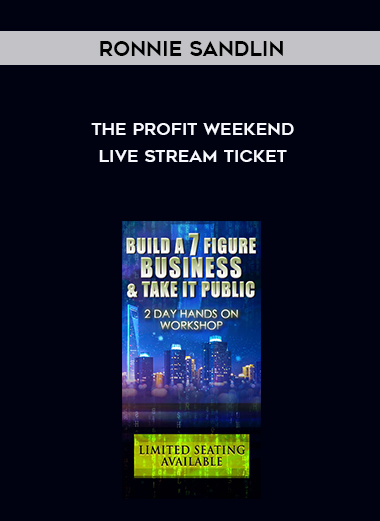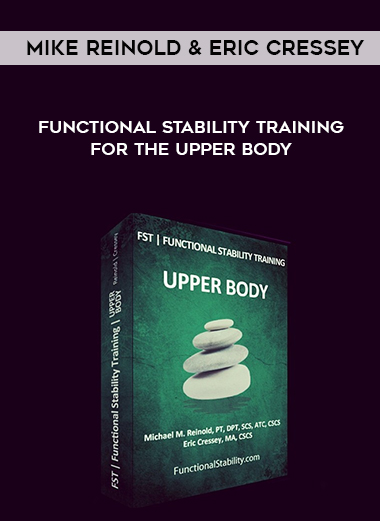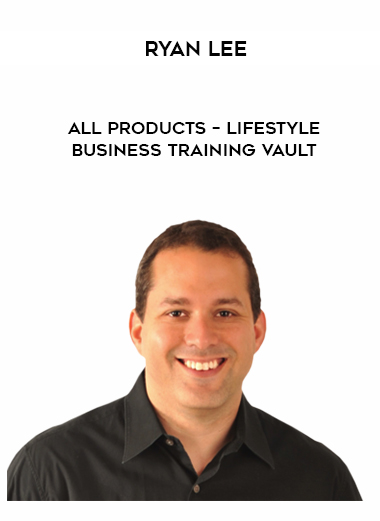
Jiddu Krishnamurti in conversation with Dr. Alan Anderson (1974)
A Completely Different Way of Life
J. Krishnamurti was born in South India and received his education in England. He has given speeches throughout the United States, Europe, India, Australia, and other areas of the world over the past 40 years. From the beginning of his life’s work, he rejected any ties to organized faiths and ideologies, declaring that his sole purpose was to render man totally unconditionally free. He has written several works, including The Awakening of Intelligence, The Urgency of Change, Freedom From the Known, and The Flight of the Eagle.
This is one of a series of conversations between Krishnamurti and Dr. Allan W. Anderson, a religious studies professor at San Diego State University who teaches Indian and Chinese texts as well as the oracular tradition. Dr. Anderson is a published poet who attended Columbia University and Union Theological Seminary. He received the exceptional teaching award from California State University.
A: Mr Krishnamurti, our last chat was almost to the point where we were going to start another, this time about meditation. And I was hoping that we could share it today.
K: Correct, sir. Sir, I’m not sure whether you’re aware of the numerous schools of meditation – in India, Japan, China, Zen, and the various Christian contemplative orders, some who pray incessantly, day after day; and those who wait for God’s grace – or whatever they call it. If I may make a suggestion, I believe we should start with what meditation is rather than what type of meditation it is.
A: Yes. Yes.
K: Then we may go and examine together, and therefore share this question of meditation, which is to think, hold together, embrace, and consider very profoundly. The meaning of everything encompassed in one single word meditation. Let us begin by admitting that we have no idea what meditation is.
A: Excellent.
K: If we embrace orthodox, traditional Christian, Hindu, or Buddhist meditation, and, of course, there is Sufi meditation among Muslims. If we believe that, everything is founded on tradition.
A: Yes.
K: What others have experienced, and they set forth the technique or system for putting what they have learned into practice. As a result, there are most likely thousands of meditation schools. And they’re becoming increasingly popular in our country: meditate three times a day; think on a phrase, a slogan, or a mantra. And you pay $35 or $100 for it, and then you receive some Sanskrit or Greek phrase and you repeat, repeat, repeat. Then there are some that engage in various sorts of breathing. As well as Zen practice. And all of this amounts to building a habit, a practice that will effectively dull the intellect. Because you will become a mechanical mind if you practice, practice, practice. So, I’ve never done any of those things because, if I may speak briefly about myself…
A: Yes, please.
K: …
I’ve observed, attended, and gone into many sorts of gatherings just to look. ‘This isn’t it,’ I replied. I threw it out right away. So, if we could discard everything: the Hindu, Buddhist, Christian, and various importations of meditation by gurus from India, and the contemplative, all of that as a continuation of a tradition, which is the carrying over of what others have said, and other’s experiences, illuminations, enlightenment, and so on. If we could get rid of everything, their techniques, systems, practices, and disciplines. Because they’re all claiming that truth, or God, or whatever they want to call it, is over there. You have to practice in order to get there. According to them, that is a set thing. It must, of course, be repaired. That must be static if I keep practicing in order to get there.
A: Of course, yes. Yes, I understand.
K: As a result, truth isn’t static, it’s not a dead thing.
A: No, no, I get what you mean.
K: So, putting all of that aside, what exactly is meditation?
A: Good.
K: I’m not sure how to meditate. We’ll start to find out what meditation is by asking that question, and we’ll start to meditate ourselves. I’m not sure if I-?
A: You certainly do. You are really clear about yourself. We’re back to the distinction between an activity with an external objective and an activity with an internal purpose…
K:…by itself.
A:…the conclusion of which is inherent in itself.
Mr. K: Yes, sir.
A: Yes.
K: Could we start by admitting I’m not sure what meditation is?
A: Oh, absolutely. I’m ready to start there.
K: It’s very fantastic if you start there.
A: It most emphatically is.
K: It instills a strong feeling of humility.
A: One may sense freedom even from a distance.
K: Yes. That’s correct. I’m not sure. That is a wonderful acceptance of independence from the established known, traditions, techniques, schools, and practices.
A: That’s right.
K: I’ll start with something I’m unfamiliar with. That has wonderful beauty in my opinion. Then I’m free to go.
A: That’s right.
K: I’m free to flow or swim with the investigation. So, I’m not sure. So, from there, we can begin. First and foremost, is meditation separate from ordinary life? Daily conduct, daily fulfillment wants, ambition, greed, envy, daily competitive, imitative, conforming spirit, daily appetites, sensual, sexual, other forms, intellectual, and so on. Is meditation separate from all of this? Or does meditation pass through, encompass, and incorporate everything? Otherwise, meditation is pointless. Do you understand?
A: I do, indeed. This brings up an intriguing topic for me. Perhaps you could assist me in clarifying this. Now, I’ve never personally practiced meditation in terms of its ritualistic nature in some traditions or its…
…monastic, according to K.
A:…its ascetic and ruthlessly meticulous attitude. I’ve read extensively in the literatures that sprang from such activities. And I’m thinking, for example, of what I’ve learned through my study of the hesychast tradition, in which monks, notably on Mount Athos, repeat the Jesus prayer, ‘Lord, Jesus Christ, have pity on me a sinner.’ This is repeated over and over with the expectation, as I understand it, that one day it will become so automatic that, as a modern-day depth psychologist might put it, the unconscious takes hold of it, so that everything I am doing, whatever that may be, is fully focused on that prayer. The idea is that once this is accomplished, when I no longer have to voice the prayer, the prayer is expressing itself in me.
K: The same thing, sir, is stated in a different form in India, which is mantra. You are aware of this?
A: Yes.
K: A statement or a word that is repeated. And the repetition, first loudly, then softly. Then it invaded your existence, and the sound of it is still going on.
A: Yes.
K: And it is from that sound that you act and live. But it’s all self-imposed in order to go anywhere. I don’t tolerate sin, for example, when you uttered the prayer that you just recited. I’m not sure what sin is.
A: I can only picture the horror on those whose ears hear those words.
K: That implies people have been conditioned to believe that there is a Jesus, that there is sin, that they must forgive – all of that. It’s simply carrying on a tradition.
A: This is really personal to me. The reason I decided not to do one of these things years ago was represented in your previous comment, namely that it is anticipated that out of this word, or out of these words…
K:…out of breathing, everything.
A:…will permeate my entire existence in some way. And the issue that emerged for me at the moment, and I’d like you to explain if you believe this query was accurate, was whether the mantram or the Jesus prayer itself is a finite expression.
K: Without a doubt.
A: So, am I not doing something unusual here?
K: Yes.
A: And if I do something worthwhile, it will most likely be in spite of it rather than because of it. That was maybe thinking about thinking. But I wasn’t aware of it at the time. I believed I was responding intuitively to it.
K: Exactly.
A: As a result, I simply would not proceed.
K: You’re not going to do it.
A: Yes. Please continue.
K: You’re quite correct, sir. So, as you can see, all of this indicates that there is a way to truth – the Christian path, the Hindu path, the Zen path, the many gurus and systems, there is a path to enlightenment or truth or immeasurable something or other. And it is there; all you have to do is keep walking, walking, heading in the direction of a saint. That item is established, fixed, static, not moving, and not alive.
A: A Biblical passage came to me in which God is defined as the lamp unto my feet and the light unto my path. It does not state that he is the route. He, on the other hand, is the lamp…
K:…right to the path.
A: Correct. As a light to the way and a candle to the feet. However, it does not state that God is the road. That is extremely intriguing.
K: Very.
A: However, it’s possible that no one pays close attention to such words.
K: I see how you’re looking at it already, sir. You can see how true that sentence is. It’s the sensation.
A: Oh, absolutely.
K: Okay, so that’s one thing. Does meditation include the entirety of existence? Is it anything completely unrelated to life? Business, politics, sex, pleasure, ambition, greed, jealousy, worry, death, fear, all of this is my life, my life, my live. Is meditation distinct from all of this, or does it encompass all of it? Meditation has no value unless it embraces everything.
A: Something just occurred to me that I’m sure would be considered extremely heretical. But you know that when understood in the context of what has been revealed through these debates, the words of Jesus himself, ‘I am the way, the truth, and the life,’ take on an enormously different significance than what we’ve been taught. For example, when he asks Peter, ‘Who am I, Jesus?’ and Peter responds, ‘Thou are the Christ, the son of the living God,’ he instantly turns to him and adds, ‘Flesh and blood has not revealed this to you.’ Nothing to do with flesh and blood, he adds elsewhere, ‘but my father who is in heaven’ is one with him. And he’s the same as his father. Then, in his prayer, he asks that the disciples be one with him as he and his father are one. That they may all be one. So when he says, ‘I am the way, the truth, and the life,’ if it’s viewed in the context of that one as act, as act, then the whole thing is altered. Isn’t that right?
K: Yes, yes, yes.
A: I’m going to have to swallow hard for a long time about that. Please continue.
K: So meditation has no relevance if it is detached from life. It’s merely an escape from life, an escape from all of our trials and tribulations, disappointments and confusions. As a result, it’s not even worth touching.
A: Yes. Right.
K: If it isn’t, and if it isn’t for me, what is meditation? Do you understand? Is it a success, the accomplishment of a goal? Or is it a perfume, a beauty that pervades all of my activities and thus has enormous significance? Meditation is extremely important.
The next question is whether it is the result of a search. Joining a Zen group, then another, one after the other, practicing this, practicing that, not practicing, taking a vow of celibacy, poverty, or not speaking at all, fast, in order to get there. All of those are completely unnecessary to me. Because, as we discussed yesterday, what is important is seeing the false, not whether I judge it to be true or false, but how the false is perceived. I must investigate. My eyes must examine it without any prejudices or reactions. Then I can say that this is false and that I will not touch it. That’s exactly what happens. I won’t. People have approached me and said, ‘Oh, you have no idea of all the things,’ ‘You must,’ and I have said, ‘Nothing doing.’ This is false in my opinion because it does not include your life.
A: Yes.
K: Nothing has changed. ‘I’m full of love,’ you might say. I speak the truth. I’m full of knowledge. I’m full of wisdom.’ I say, ‘That’s all nonsense. Do you behave? Are you free of fear? Are you free of ambition, greed, envy and the desire to achieve success in every field? If not, you are just playing a game. You are not serious.’ So, from that we can proceed.
A: Yes.
K: That meditation includes the whole field of existence, whether in the artistic field, or the business field. Because, to me, the division as the artist, business, the politician, the priest, the scholar, and the scientist, you know, how we have fragmented all these as careers, to me, as human beings are fragmented, the expression of this fragmentation is this, business, scientist, the scholar, the artist. Do you understand?
A: Yes, yes, yes. I’m thinking of what goes on in the academy with respect to this. We are always saying to each other as academicians, ‘For heaven’s sake let’s, let’s find an ordering principle by which to bring all this into some kind of integration, so the student can really feel that he’s doing something meaningful. And not just adding another freight car to the long train of what he doesn’t even see.’
K: Yes, yes, yes.
A: Yes.
K: And meditation must be, or is, when you deny all this – systems, methods, gurus, authorities – a religious question.
A: Yes, profoundly religious.
K: Profoundly religious.
A: Oh, absolutely.
K: Now, what place has an artist in not only the social structure, in its expression of the religious? You understand? What is an artist, sir? Is he something apart from our daily living? The beauty of living. The quality of the mind that is really religious. Do you understand? Is he part of that? Or is he a freak, outside that? Because he has certain talents? And the expression of that talent becomes extraordinarily important to him and to the people.
A: In our culture it often seems that the expression of that talent brings him into conflict with certain conventions.
K: And also expressing that conflict in himself.
A: Of course. Yes, we have a long tradition in western civilisation of the artist as an outsider, don’t we.
K: Yes. Something outside. But he is much more sensitive, much more alert to beauty, to nature, but apart from that he is just an ordinary man.
A: Of course, yes. Yes.
K: To me, that is a contradiction. First be a total human being. And then whatever you create, whatever you do will be beautiful.
A: Of course.
K: Whether you paint, or whatever you do. Don’t, let’s divide the artist into something extraordinary. Or the business man into something ugly. Let’s call it just living in the world of the intellect, or the scientist in the world of physics, and so on, so on. But first there must be human being. You follow, sir? Human being in the sense, the total understanding of life, death, love, beauty, relationship, responsibility, not to kill. All that’s implied in living. Therefore he establishes a relationship with nature. And the expression of that relationship, if it is whole, healthy is creative.
A: This is very, very different from what many artists conceive of as their task. Especially in modern times artists have this notion that they are in some sense reflectors of the fragmentation of their times.
K: Without a doubt.
A: And so they make a statement which holds up the fragmentation as a mirror to us, and what has this got to do with anything else but reinforcing the fragmentation.
K: Without a doubt.
A: Yes. Yes I quite understand what you are saying.
K: You see that meditation covers the whole field of existence. Meditation implies freedom from the method, the system, because I don’t know what meditation is. I start from that.
A: Yes.
K: Therefore I start with freedom. Not with their burden.
A: That’s marvellous. Start with freedom and not with their burden. This business of holding up fragmentation to us from that perspective is really nothing more than a species of journalism.
K: Journalism, absolutely.
A: Isn’t it. Yes, yes.
K: Propaganda.
A: Of course, yes.
K: Therefore, lie. So I discard all that. So I have no burden. Therefore the mind is free to enquire what is meditation?
A: Marvellous.
K. I have done this. You follow, sir? It is not verbal expressions. I don’t say anything which I haven’t lived.
A: Oh that’s very, very obvious to me as one sitting here conversing with you. Yes.
K: I won’t. That is hypocrisy. I am not interested in all that. I’m really interested in seeing what is meditation. So I start – one starts with this freedom. And freedom means freeing the mind, emptying itself of the burdens of others, their methods, their systems, their acceptance of authority, their beliefs, their hope, because its part of me, all that. Therefore I discard all that. And, now I start by saying, I don’t know what meditation is. I start. That means the mind is free, has this sense of great humility. Not knowing I’m not asking. Then somebody will fill it.
A: Exactly.
K: Some book, some scholar, some professor, some psychologist comes along and says, ‘You don’t know. Here, I know. I’ll give it to you.’ I say, ‘Please don’t.’ I know nothing. You know nothing either. Because you are repeating what others have said. So I discard all that. Now I begin to enquire. I’m in a position to enquire. Not to achieve a result, not to arrive at what they call enlightenment. Nothing. I don’t know if there is enlightenment or not. I start with this feeling of great humility, not knowing, therefore my mind, the mind is capable of real enquiry. So I enquire. First of all I look at my life, because I said in the beginning meditation implies covering the whole field of my life, of life. My life, our life, is first the daily conscious living. I’ve examined it. I have looked at it. There is contradiction and so on, as we’ve been taking about. And also there is the question of sleep. I go to sleep, eight, nine, ten hours. What is sleep? I start not knowing. Not what others have said. You follow, sir?
A: Yes, I do.
K: I’m enquiring in relation to meditation which is the real spirit of religion. That is, gathering all the energy to move from one dimension to a totally different dimension. Which doesn’t mean divorce from this dimension.
A: No, it’s not like those monks going up the hill, no.
K: I’ve been up those hills.
A: Yes.
K: So, what is sleep? And what is waking? Am I awake? Or, I am only awake when there is a crisis, when there is a shock, when there is a challenge, when there is an incident, death, discard, failure. You follow? Or am I awake all the time, in waking during the daytime. So what is it to be awake? You follow, me sir?
A: Yes, I am, I am. Since you are saying that meditation must permeate, obviously, to be awake cannot be episodic.
K: That’s it. Cannot be episodic. Cannot be something stimulating.
A: Can’t be described as peak experiences.
K: No, no. Any form of stimulation, external or internal only implies that you are asleep and you need a stimulant, whether it is coffee, sex, or a tranquilliser. All keep you awake.
A: Have a shot to go to sleep and have a shock to wake up.
K: So, in my enquiry I am asking, am I awake? What does it mean to be awake? Not awake to what is happening politically, economically, socially, that is obvious. But awake. What does it mean? I am not awake if I have any burden. You follow, sir? There is no sense of being awake when there is any kind of fear. If I live with an illusion, if my actions are neurotic, there is no state of being awake. So I’m enquiring and I can only enquire by becoming very sensitive to what is happening in me, outside me. So is the mind aware during the day completely to what is happening inside, outside of me.
A: Upon every instant.
K: That’s it. Otherwise I am not awake.
A: I was just thinking about something that has always given me a great sense of wonder. At home we have some birds and, of all things, a cat too.
K: Of course.
A: But they love one another. That is to say, the birds don’t run around in the room with the cat, but the cat supervises the birds. When the birds are put to bed in the evening the cat goes into that room and stays with them, maybe an hour or two, watches. Just seems to have the feeling that it must look after the birds. And in the day time, I’ve often watched the cat sit and look at the birds with an immense intensity, and the ordinary reaction is, ‘Well for heaven’s sake, haven’t you seen them before?’ What is this everlasting intensity, but she’s looking.
K: That’s right, sir.
A: And her eyes are always with that jewel-like…
K: …clarity.
A: …intensity and clarity. Cleaner than flame. And it never stops. And when she sleeps, she really – yes. When you asked me what is sleep, there must be a relation between the wonder that we feel for the cat’s ability completely to sleep. And when she awakes she’s completely awake.
K. That’s right, sir. So in asking and enquiring what is sleep, I must also ask what is to be awake.
A: Of course.
K: Of course. Am I awake? Or is the past so alive that it is dictating my life in the present? Therefore I am asleep.
A: Would you say that again? It’s very important.
K: I don’t know how, I’ll put it differently. Am I awake? Is my mind burdened with the past? And therefore bearing a burden I’m not awake to the present.
A: Not awake in the present, exactly.
K: Not awake as I am talking.
A: That’s right.
K: Because I’m talking from the background of my past, of my experience, of my failures, my hurts, my depressions, therefore the past is dominating and putting me to sleep now.
A: To sleep. It’s a narcotic.
K: Narcotic. Therefore what am I to do with the past? You follow, sir?
A: Yes, I do. Yes, yes, yes.
K: Past is necessary.
A: Of course, yes, the whole field of knowledge.
K: Knowledge. Past is necessary. But when the past covers the present, then I am asleep. So is it possible to know what the past is and not let it overflow into the present? That question and the reality of it brings its own discipline. Therefore I say, yes, I know what it means. I can live, I can keep awake totally and widely and yet operate in the field of knowledge. So there is no contradiction. I don’t know if I am conveying it?
A: Oh you are. You are, you are.
K: So both are moving in harmony. One doesn’t lag behind the other. One doesn’t contradict the other. There’s balance.
A: Well, what I am seeing here, if I am following correctly is, on the one hand we have knowledge and the grasp of its necessity with respect to know-how in practical affairs.
K: Of course.
A: On the other hand we have seeing, understanding. And the act of meditation is the nexus…
K: That’s right, sir.
A: …between them so that there is no interruption of flow in the activity…
K: That’s right.
A: …of understanding and knowing.
K: That is part of meditation.
A: Of course.
K: You follow?
A: Yes.
K: See what is taking place. Then what is sleep? I have understood now what is means to be awake. That means I am watching. I am aware. I am aware without any choice, choiceless awareness, watching, looking, observing, hearing, what is going on and what is going outside, what people tell me, whether they flatter me, or they insult me. I am watching. So I am very aware. Now, what is sleep? I know what is sleep: resting, shutting your eyes, going to bed at 9 or 10 or later. What is sleep? And in sleep, dreams. What are dreams? I don’t know what the others say. I am not interested in what the others say. You follow, sir? Because my enquiry is to find out whether meditation covers the whole field of life, not just one segment.
A: My enquiry is from the point where I say, ‘I don’t know’.
K: I don’t know. That is right. So I’ll proceed. I dream. There are dreams. What are dreams? Why should I dream? So I have to find out why I dream. What are dreams? Dreams are the continuation of my daily sleep. Which is, I haven’t understood – see what is taking place, sir – I have not understood my daily life. I watch my daily life. My daily life is in disorder; so I go to sleep and the disorder continues. And the brain says, ‘I must have order otherwise I can’t function’. So if the mind doesn’t put order during the day, the brain tries to bring order during the night.
A: Through the dream.
K: Through the dreams, through intimations. When I awake I say, ‘Yes I have a certain feeling this must be done’. So, see what takes place. When the mind is awake during the day it has order, it establishes order, in the sense we have discussed previously.
A: Yes. In that sense of order.
K: Order which comes out of the understanding of disorder. The negation of disorder is order, not the following of a blueprint.
A: No.
K: Or a pattern, all that’s disorder. So during the day, the mind, the brain has established order. So when I sleep the brain isn’t working out how to establish order in itself in order to be secure. Therefore the brain becomes rested.
A: I see.
K: Therefore the brain becomes quiet, sleeps without dreams. It may have superficial dreams when you eat wrongly, you know, all that kind of thing. That I am not talking about. So, sleep means regeneration of the brain. I don’t know if you follow?
A: Yes, I do. I wonder if I could ask you a question about dreams here, that might introduce a distinction between dreams in terms of their nature. Sometimes we report that we’ve had a dream which points to future event.
K: That’s another thing.
A: That’s entirely different from what you are talking about.
K: Yes, yes.
A: So we could say that…
K: Sir, that, I think we can understand that very simply. You know the other day we were walking high up in the hills in India and there was a river flowing down below. And two boats were coming in the opposite direction and you knew where they were going to meet.
A: Of course.
K: When you go high enough you see the boats coming together at a precise point.
A: But that’s very objective. That has nothing to do with my subjective unfinished business.
K: No.
A: Which is the other thing you were talking about.
K: That’s right.
A: Yes, I quite see, I quite see. Right. What an amazing thing it would be to have all your business done and go to sleep. And if order should present you with…
K: Yes, sir.
A: …an understanding.
K: Of course.
A: Then the understanding never stops from waking through sleeping.
K: That’s right.
A: Yes! Of course. Of course. Marvellous. Marvellous.
K: So you see, that way the brain is regenerated, keeps young. No conflict. Conflict wears out the brain.
A: Yes.
K: So, sleep means not only order, rejuvenation, innocence, but also in sleep there are states in which there is absolutely freedom to enquire, to see into something which you have never seen with your eyes, physical eyes.
A: Yes.
K: Of course.
A: Yes
K: So we have described sufficiently into that. I see that. So do I – does the mind live that kind of life during the day?
A: That would be rare.
K: Otherwise it is not meditation.
A: Otherwise it is not meditation, of course, of course, of course.
K: And I don’t want to play a game, a hypocritical game, because I am deceiving nobody. I am deceiving myself and I don’t want to deceive myself. I don’t see the point of deceiving myself because I don’t want to be a great man, little man, big man, success. That’s all too infantile. So I say, am I living that? If not, what is happening? And it gives me energy to live that way because I have no burden of the others. I don’t know?
A: This is very remarkable. It reminds me of a story that is told about a swordsman and his three sons. And he was an old, old swordsman in old Japan and he wanted to pass on the responsibility for his art to his sons. And he asked the sons each to come into his room and he would speak to them and he would decide.
K: Quite, quite.
A: He was a man of knowledge in terms of the sword, but he also was a man of understanding. And unbeknown to them he put a ball on top of the lintel and as they passed in, they, of course, were quite unaware of that. The youngest was called in first, and when the youngest walked in his father had arranged for this ball to drop, you see, and the ball dropped and the son, in a flash, cut it in two with his sword when it fell down. And his father said, ‘Please wait in the other room.’ The second son came in, ball fell on his head but precisely as it touched his head he reached up and he took it in his hands and the father said, ‘Please wait in the other room.’ Eldest son came in. He opened the door, and as he opened the door he reached up and he took the ball. And the father called them in and he read out the youngest son and he said, ‘Very brilliant. You’ve mastered the technique. You don’t understand anything.’ He said to the second one, ‘Well, you’re almost there. Just, just keep on, keep on.’ And he said to the eldest son, ‘Well, now you can begin.’ And it seemed to me that’s just exactly – imagine! It’s like the word ‘prajna’ which means ‘pra’ – ahead, ‘jna’ to, to know, to know beforehand, in the sense, not of some work of prediction that we do based on the study of rats in the lab or something but understanding is…
K: Yes, sir,
A: …ahead and behind in the total movement of that one act.
K: Yes, sir.
A: Oh yes of course.
K: So I see this, because I do not separate meditation from daily living. Otherwise it has no meaning. So I see the importance of order during the waking hours. And therefore freeing the mind – the brain from conflict, all that, during sleep, so there is total rest to the brain. That’s one thing. Then, what is control? Why should I control? They have all said control. All religions have said control. Control. Be without desire. Don’t think about yourself. You follow? All that. I say to myself – this is what they say – can I live without control? You follow, sir?
A: Oh yes, yes. One has to start that question too at the very beginning.
K: I am doing it. That’s what we are doing.
A: Yes. My statement is a reflection. Just a mirror to that, yes.
K: Yes.
A: Yes.
K: Is it possible to live without control? Because what is the control? And who is controller? The controller is the controlled. When I say, ‘ I must control my thought’, the controller is the creation of thought. And thought controls thought. It has no meaning. One fragment controls another fragment, and yet therefore remain fragments. So I say, is there a way of living without control? Therefore no conflict. Therefore no opposites. Not one desire against another desire. One thought opposed to another thought. One achievement opposed to another achievement. So, no control. Is that possible? Because I must find out. You follow, sir? It’s not just ask a question, just leaving it alone. I’ve got energy now because I am not carrying their burden anymore. Nor am I carrying my own burden. Because their burden is my burden. When I have discarded that I have discarded this. So I have got energy when I say is it possible to live without control. And so it is a tremendous thing. I must find out. Because the people who have control, they have said through control you arrive at Nirvana, heaven – to me that’s wrong, totally absurd. So I say, can I live a life of meditation in which there is no control?
A: When intelligence breaks out, as we looked at before, then with it comes order and that order…
K: Intelligence is order.
A: And intelli














Reviews
There are no reviews yet.